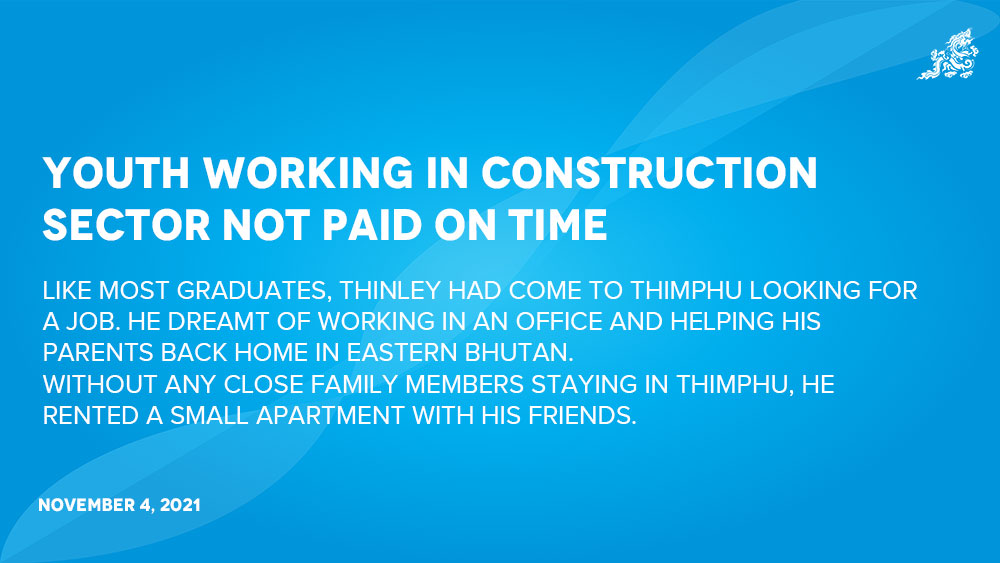Thinley Wangmo | intern
Like most graduates, Thinley had come to Thimphu looking for a job. He dreamt of working in an office and helping his parents back home in eastern Bhutan.
Without any close family members staying in Thimphu, he rented a small apartment with his friends.
Desperate to pay the bills on time, he was willing to work under any circumstance and took up a job in the construction industry before he could find an office job.
However, after about five months of working on a road construction project in the hospital area, Thinley and friends did not receive their wages on time and had to lodge a complaint against the contractor, who promised he would pay them, but never did.
It’s not only Thinley who did not get wages for the work. Many young people who took up construction jobs after the pandemic impacted their previous work situation have faced the same problem.
“People always say that the youth are not taking up construction jobs, but when we do, only a few appreciate it. Most people look down on us or suggest that we find other jobs according to our qualifications,” Thinley said. “I didn’t lose hope, though. I worked hard, but when I didn’t get my wages on time, it really demotivated me.”
According to Thinley, the contractor kept making excuses and never paid their money. “It’s difficult to survive in Thimphu.”
Another daily wage worker, Tshering, 26, also said the contractor never paid on time as promised.
He said reporting the contractors to authorities is difficult, as they know everyone and are connected to officials everywhere. “I wish there were laws that could protect workers like us.”
Although the labour laws have provisions where workers can complain, many youth do not lodge complaints because of the related hassle. “Going to the office of the Ministry of Labour and Human Resources and other agencies to complain consumes a lot of time. We need work to survive and do not have time,” a youth said.
Meanwhile, daily wage workers like Thinley could earn Nu 600 to 700 a day if the contractors paid them on time. “The amount would be sufficient for our survival, and there would be a little to send home if we were paid on time,” said Thinley.
Edited by Tashi Dema


